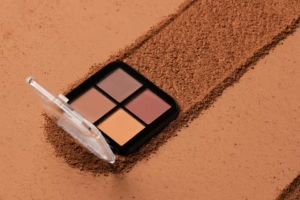The Science Behind Beautiful Skin: Dermatology Breakthroughs to Watch
In the ever-evolving field of dermatology, groundbreaking research and innovations continue to push the boundaries of our understanding of skin and its health. The quest for beautiful skin is not just a superficial concern; it encompasses medical science, technology, and even psychology. This article delves into the scientific principles behind skin health and explores some exciting dermatological breakthroughs that show promise for enhancing our skin’s appearance and well-being.
Understanding Skin Structure and Function
The Skin: Our Largest Organ
The skin is the body’s largest organ, serving as a protective barrier and playing vital roles in thermoregulation, sensation, and immune response. It consists of three primary layers: the epidermis, dermis, and subcutaneous tissue. Each of these layers has distinct functions and contributes to overall skin health and appearance.
- Epidermis: The outermost layer responsible for barrier function. It contains keratinocytes, melanocytes, and Langerhans cells, the latter of which play a role in immune response.
- Dermis: This middle layer contains collagen and elastin fibers, providing structure and elasticity. It houses blood vessels, hair follicles, and sweat glands.
- Subcutaneous Tissue: The innermost layer made of fat cells that provide insulation and cushioning for underlying structures.
Skin Aging and Its Causes
Skin aging is a complex process influenced by intrinsic (genetic) and extrinsic (environmental) factors. Intrinsic aging is a natural process, whereas extrinsic aging is largely determined by lifestyle choices and environmental exposures like UV radiation, pollution, and smoking. The rate at which we age can be slowed down or accelerated by our daily habits.
Breakthroughs in Dermatology: The Cutting Edge
As our understanding of skin biology deepens, several exciting advancements have emerged in dermatology. Here’s a look at some key breakthroughs that are transforming the landscape.
1. PrP Technology (Platelet-Rich Plasma)
Platelet-rich plasma (PRP) therapy involves drawing a patient’s blood, processing it to concentrate the platelets, and injecting the PRP into targeted areas of the skin. The high concentration of growth factors in PRP is thought to promote skin healing, stimulate collagen production, and enhance overall skin texture.
Current Research: Studies suggest that PRP can significantly improve conditions like acne scars and wrinkles, promoting skin rejuvenation without the need for surgical interventions^1. As research continues, PRP may become a staple in aesthetic dermatology.
2. Microbiome and Skin Health
Recent studies have illuminated the complex relationship between skin health and the microbiome. The skin is home to diverse microorganisms that contribute to barrier function and immune defense. Disruptions in the skin microbiome can lead to conditions such as eczema, acne, and psoriasis.
Current Research: Probiotics and prebiotics are being investigated for their potential to restore balance to the skin microbiome. Researchers are developing topical products that contain beneficial bacteria to enhance skin health and treat various dermatological conditions^2.
3. Gene Therapy for Skin Disorders
Gene therapy is emerging as a revolutionary approach for treating genetic skin disorders like epidermolysis bullosa (EB), which leads to fragile, blister-prone skin. Researchers are exploring ways to deliver genes that can correct the underlying mutations responsible for these diseases.
Current Research: Early studies have shown promise in using gene therapy to directly target and rectify the genetic defects affecting skin integrity. Techniques such as CRISPR-Cas9 are being explored to edit genetic mutations at their source^3.
4. Biologics for Inflammatory Skin Conditions
Biologics are a class of medications derived from living organisms and tailored to target specific pathways in diseases like psoriasis and atopic dermatitis (eczema). These therapies have revolutionized the treatment of moderate to severe cases that don’t respond to traditional treatments.
Current Research: Ongoing investigations are identifying new biological targets and expanding the range of conditions treated by these advanced therapies. With more personalized options on the horizon, patients may see improved outcomes and fewer side effects^4.
5. AI and Dermatology: The Digital Revolution
Artificial intelligence (AI) is making waves in dermatology through advanced imaging techniques and algorithms that can assist in diagnosing skin conditions. These technologies are trained to recognize patterns in images of skin lesions, enabling faster and more accurate diagnoses.
Current Research: AI systems have shown promise in identifying skin cancers with accuracy comparable to that of dermatologists. As these tools continue to evolve, they hold the potential to democratize skincare access and enhance early detection rates^5.
6. Advances in Non-Invasive Treatments
The demand for non-invasive cosmetic treatments has spurred advancements in technologies like lasers, radiofrequency, and ultrasound. These modalities are used for skin tightening, rejuvenation, and pigmentation correction without the need for lengthy recovery periods.
Current Research: New forms of energy-based treatments are continually being refined, with research focusing on optimizing safety and efficacy. Innovations like fractional laser technology have redefined the possibilities for skin resurfacing and rejuvenation^6.
7. Personalized Skin Care
The trend toward personalized skincare based on genetics, lifestyle, and microbiome profiles is gaining traction. Products tailored to an individual’s unique skin characteristics promise to improve efficacy and minimize adverse reactions.
Current Research: Companies are developing algorithms that consider genetic data to recommend skincare routines that specifically target an individual’s skin type and conditions. This bespoke approach could revolutionize how we approach skincare^7.
Psychological Aspects of Skin Health
The Mind-Skin Connection
The relationship between skin health and mental well-being is gaining recognition in dermatology. Conditions like psoriasis and eczema often carry psychological burdens, contributing to anxiety and depression. Conversely, mental health can impact skin conditions, creating a cyclical relationship^8.
Current Trends in Psychodermatology
Psychodermatology focuses on treating skin conditions by addressing psychological factors. Integrative approaches that incorporate therapy, stress management, and lifestyle changes alongside dermatological treatment are gaining popularity.
Current Research: Initiatives are exploring the benefits of mindfulness, cognitive-behavioral therapy, and other psychotherapeutic methods in treating chronic skin conditions. Early results show that addressing mental health can lead to significant improvements in skin symptoms^9.
The Future of Dermatology
As we look toward the future, the integration of emerging technologies, personalized medicine, and a holistic approach to skin health will play a critical role in shaping dermatology. The ongoing research and clinical studies mentioned earlier point towards a rapidly approaching era where skin health is addressed from multiple angles.
Sustainable and Eco-Friendly Products
With the rise of consumer awareness regarding environmental issues, the dermatological field is also focusing on sustainable ingredients and eco-friendly packaging. This shift will likely shape product formulations and marketing strategies in the coming years.
The Role of Teledermatology
By leveraging technology, teledermatology has emerged as a feasible option for consultations, leading to greater accessibility for patients living in remote areas. Remote diagnosis and monitoring reduce wait times and improve dermatological care.
Conclusion
The advancements in dermatology present an exciting and hopeful landscape for those seeking beautiful, healthy skin. With research efforts poised at the intersection of science, technology, and holistic well-being, the future promises a greater understanding of skin health and more effective treatments for all types of skin conditions. This holistic approach not only enhances the aesthetic aspects of skin but also addresses underlying health concerns, ensuring that beauty truly comes from within.
Footnotes
- PRP Therapy in Dermatology: Current Applications and Future Directions
- The Role of the Skin Microbiome in Health and Disease
- Gene Therapy Approaches for Treating Skin Disorders
- Biologics for the Treatment of Psoriasis and Atopic Dermatitis
- Artificial Intelligence in Dermatology: Current Applications and Future Perspectives
- Non-Invasive Skin Treatments: Innovations and Effectiveness
- The Future of Personalized Skincare: Opportunities and Challenges
- Understanding the Mind-Skin Connection: An Interdisciplinary Approach
- Psychodermatology: Integrating Dermatology and Psychiatry for Improving Skin Health


























Add Comment